Editors’ Picks




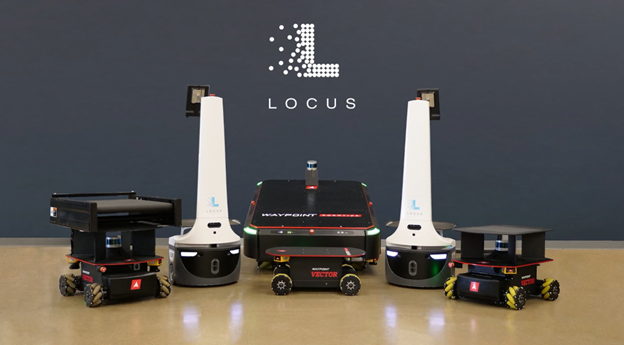
Found in Robotics News & Content, with a score of 3.21
…central point of what we've developed in our software stack—navigation in the dynamic warehouse—is to allow LocusBots to work near humans with no more risk than bumping into another human.” “Robots are great, and we think ours is better than anything else out there, but we have to be honest about the technology that's affordable for the applications we're going after,” Walker added. “We have to recognize that robots have limits and still need help. If we think about the businesses that can't find labor, it only makes sense to make the robots easier to be helped by the people…
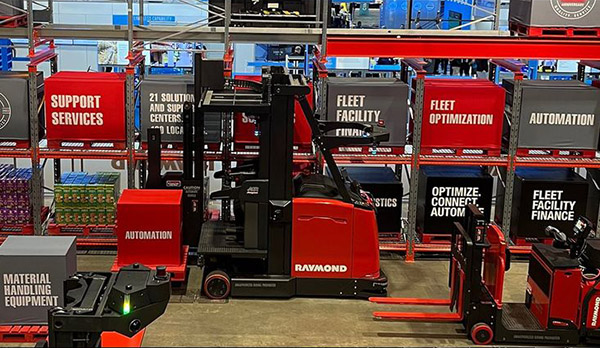
Found in Robotics News & Content, with a score of 3.16
…battery charges, it noted. Natural feature recognition allows infrastructure-free navigation. Automated and manual modes allow full pallet handling or case picking. Raymond high-capacity reach trucks. “With a unique stability system, heavy-duty mast frame and a universal forward-facing stance, Raymond high-capacity reach trucks offer an exceptional operator experience, along with the highest lift heights, heaviest capacities, and the fastest cycle times in the industry,” said the company. It displayed Energy Essentials Distributed by Raymond lithium-ion batteries engineered to integrate seamlessly into the company's forklifts. Raymond Courier 3030 automated stacker. The Raymond Courier 3030 automated stacker features a 72-in. reach capability and…
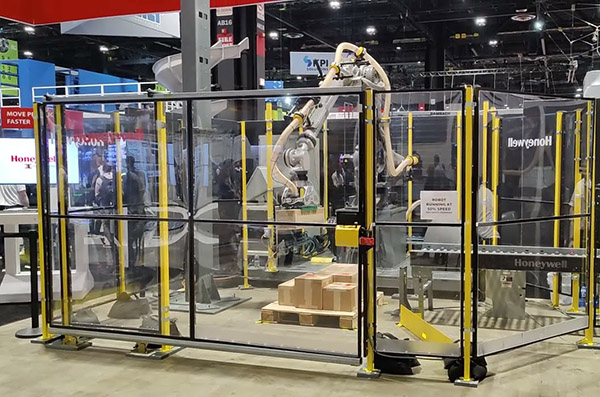
Found in Robotics News & Content, with a score of 3.04
…with mobile robots already using its “ANT” natural feature navigation software. The company is working on broader reach using content from standards, according to Dr. Nicola Tomatis, CEO of BlueBotics. ProMat exhibitors discuss data Integrated, smart systems will also feed into analytics platforms, improving the ability of warehouse automation to adapt dynamically, other exhibitors told me. Rob McKeel, CEO of global systems integrator and automation provider FORTNA, said that technology advances in areas like robotic piece picking can be the right fit today for some tasks. He said he also expects software platforms for digital twin modeling, data science, and…
Found in Robotics News & Content, with a score of 2.93
…they are more efficient and responsive. Look at the navigation function on a smart phone. It can you show where traffic is backed up 100 miles ahead and allow you to plan a detour. It’s tapping the GPS of all those other drivers to see which ones are slow. We’re doing the same thing for material flow. For complex systems handling thousands of orders per hour, predicting and preventing bottlenecks adds a lot of value. Modern: What is the importance of software in today’s distribution center and factory? And what kinds of data are customers asking for that they didn’t…
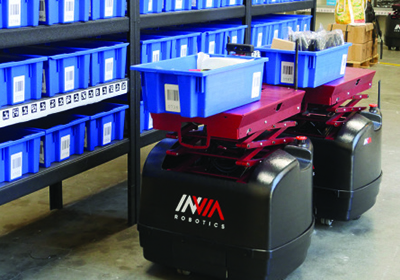
Found in Robotics News & Content, with a score of 2.92
…the new destination can be added to the robot’s navigation plans with the click of a button. With a view into traffic at each station, the robot can choose the best option for each delivery. Software and hard changes Providing an operational view to each AGV is where increasingly intelligent software comes into play. When integrated with the enterprise resource planning system, the warehouse management system (WMS) or execution software, the AGV becomes the physical extension of the ambitions of the WMS, according to Bill Torrens, sales director for OTTO Motors. However, the “brains” inside each self-driving vehicle interpret real-time…
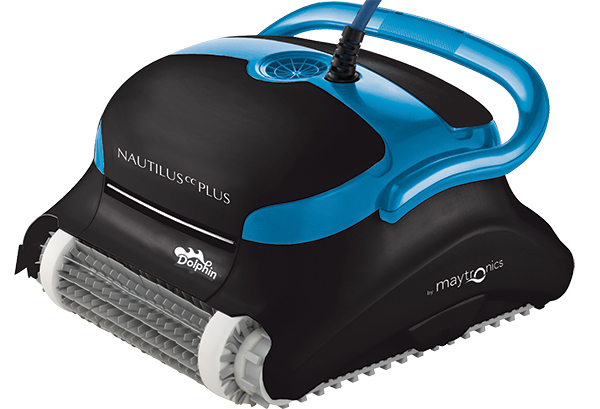
Found in Robotics News & Content, with a score of 2.90
…however, remains daunting. Fig. 4: The temi robot’s ROBOX navigation system incorporates LiDAR, depth and RGB cameras, an inertial measurement unit, and proximity and time-of-flight linear sensors. This instrumentation allows the robots to perform 3D mapping, user detection and tracking, obstacle avoidance and path planning. Image courtesy of temi USA. “When designing robots, we always compare it to the human body—depth sensors and cameras instead of eyes, microphones for ears, motors for muscles and wires for veins and nerves,” says Frenkel. “That being said, even with these artificial body parts, it is very hard to teach a robot that a…
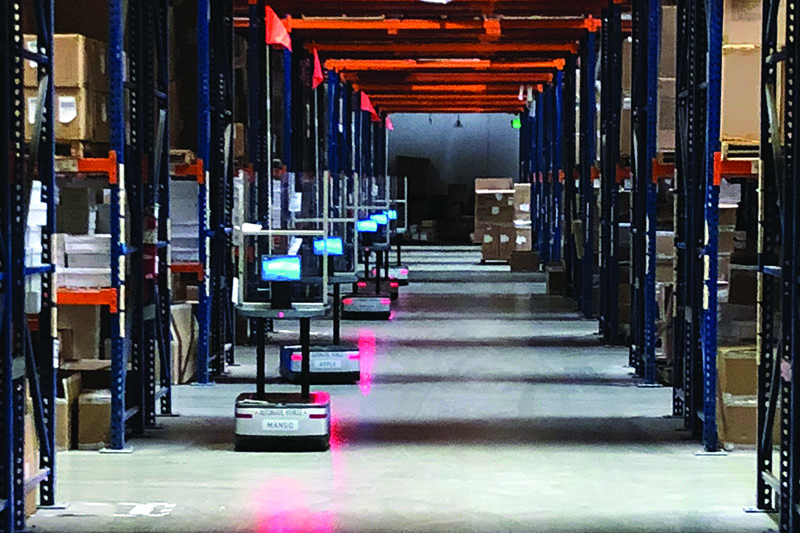
Found in Robotics News & Content, with a score of 2.83
…hours, as opposed to learning paper-based procedures or complicated navigation menus on wireless devices. Another key benefit of the system is that it generates detailed analytics about warehouse picking processes and inventory levels and movements. The Oklahoma City DC uses this data for various purposes, from metrics visibility for supervisors, to fine-tuning inventory positions, and knowing which workers are performing above average. By comparison to largely manual order picking processes where data collection can be overlooked or very basic, a mobile robotics platform is constantly generating data about what the robots did, what orders or materials they helped pick or…
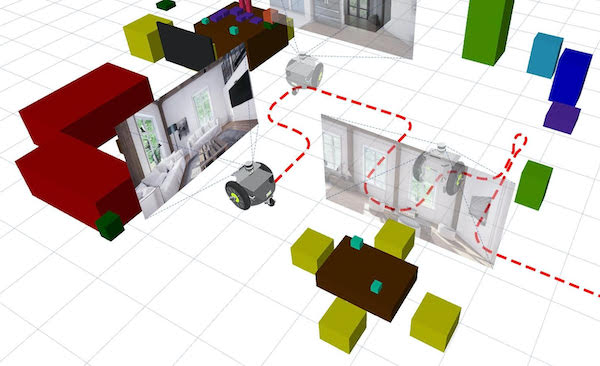
Found in Robotics News & Content, with a score of 2.79
…robotics, computer vision, and machine learning. Suenderhauf's research interests focus on scene understanding, object-based semantic SLAM, robotic learning for navigation and interaction, uncertainty, and reliability of deep learning in open set conditions. Editor's note: This article reposted with permission from NVIDIA.
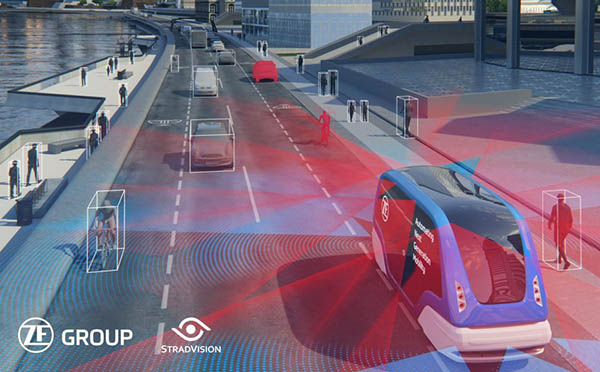
Found in Robotics News & Content, with a score of 2.75
…and artificial intelligence that can handle perception and safe navigation. STRADVISION last month rebranded itself as it expands the capabilities of its safety-certified SVNet software. Founded in 2014, STRADVISION said it is working to accelerate the advent of fully autonomous vehicles with more affordable advanced driver-assist systems (ADAS). The company said 559,967 vehicles were using SVNet as of June 2022, and 13 OEMs are developing more than 50 models with it. STRADVISION’s stated sales goal is to introduce the award-winning software in 50% of the cars produced annually within 10 years. STRADVISION refocuses on applications, adds execs In response to…
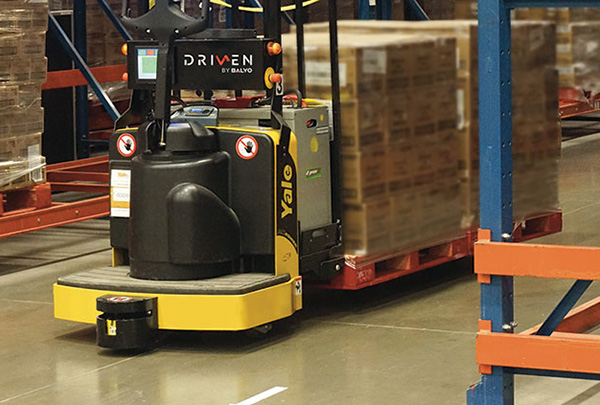
Found in Robotics News & Content, with a score of 2.74
…an operator on board, but it also has warehouse navigation and sensing technology to obtain task and location instructions from a warehouse management system, Ardito said. It can automatically take the vehicle and the operator to the correct location by the most efficient route. Such vehicles are less expensive than fully automated vehicles of the same type, but they carry some of the same benefits, such as use of route optimization and location accuracy, said Ardito. “For operations that aren’t yet ready to jump into a fully automated solution, or the application doesn’t justify full automation, a semi-automated vehicle provides…
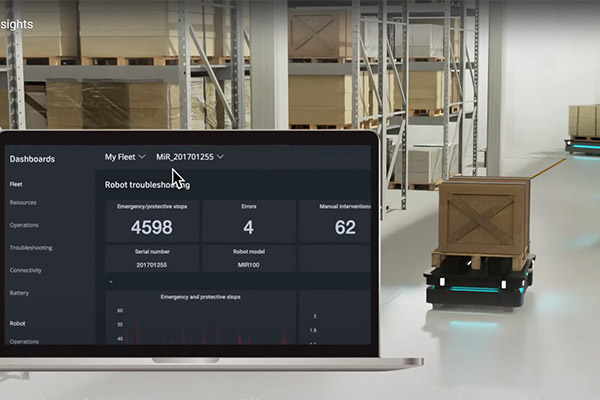
Found in Robotics News & Content, with a score of 2.73
…The roles of AI and human-machine collaboration Beyond autonomous navigation, what role does artificial intelligence play in managing robot fleets? Do you see a place for generative AI? Heffner: Now that we have pretty large install base, MiR Insights allows us to use AI to look at that data and help customers optimize their systems. We can ask, “What would a new environment look like?” Peterson: Our robots have been using AI from the very beginning to evolve tasks like dynamic path planning and object avoidance. Our cloud-based LocusONE platform applies AI to optimize fleet management, workflows, and collaboration with…
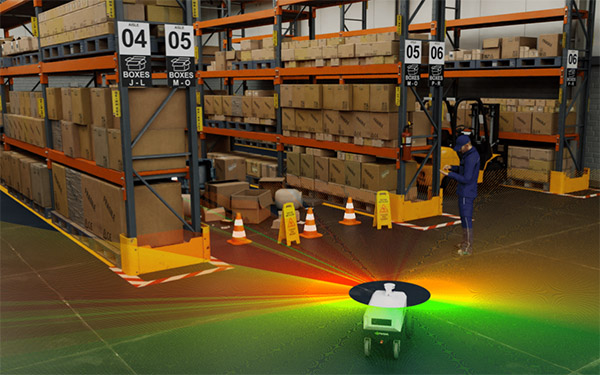
Found in Robotics News & Content, with a score of 2.40
…rendered in simulation. Training it on large datasets enables navigation of unknown environments in the real world. Apart from directly learning a trajectory model as in MπNets, the team also recently unveiled a new point cloud-based collision model called CabiNet. With the CabiNet model, one can deploy general purpose pick-and-place policies of unknown objects beyond a tabletop setup. CabiNet was trained with over 650,000 procedurally generated simulated scenes and was evaluated in NVIDIA Isaac Gym. Training with a large synthetic dataset allowed it to generalize to even out-of-distribution scenes in a real kitchen environment, without needing any real data. Simulation…



